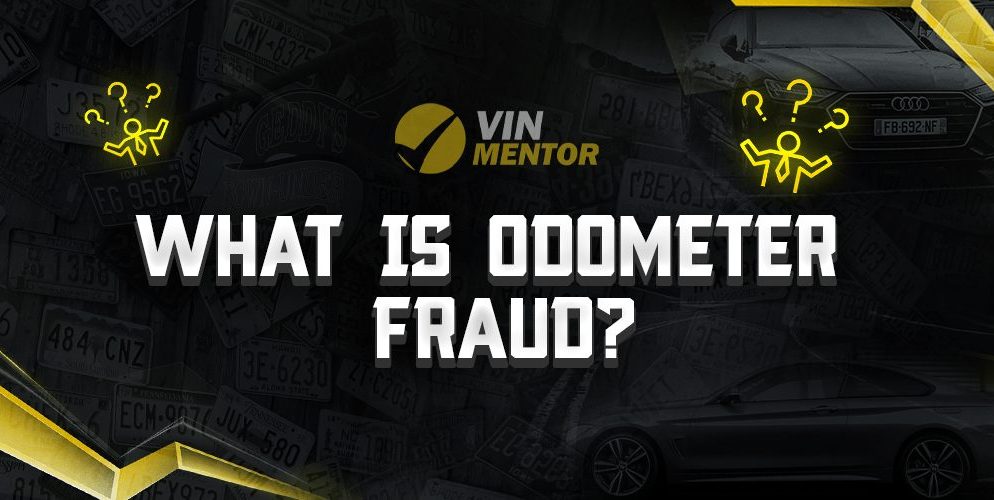

The odometer on a car tells you how many miles it has driven. If you’re lucky enough to have a new car, it may only have a few miles on it. However, most used cars have much more, and the number of miles a car has can impact its value. That’s why some people engage in odometer fraud, which is the practice of changing the number of miles on a car.
Here’s everything you need to know about odometer fraud so you can spot it and avoid it in the future.
Key Takeaways
- Odometer fraud is the practice of altering a car’s mileage, typically by rolling back the odometer to display fewer miles than the car has actually traveled, in order to increase its value.
- Cars with falsely reported lower mileage can lead to costly repairs and inflated purchase prices for the buyer.
- Detecting odometer fraud can be challenging, but examining the car’s title, maintenance history, odometer gauge, tires, and vehicle history report can provide clues to potential fraud.
- If odometer fraud is detected before purchasing a car, it is best to avoid buying the vehicle, as there may be other hidden issues.
- If odometer fraud is discovered after purchasing a car, check local regulations, as there may be laws in place to protect buyers, and legal action could be a possible recourse.
So What is Odometer Fraud?
Odometer fraud is when a person removes miles from a car’s odometer. They roll them back so that it looks like the car has fewer miles than it actually does. Once the person falsely reports the mileage, whether to someone they want to sell it to, insurance companies, or other agencies, it becomes fraud.
This is a serious issue because cars with more miles often run into more issues as the car gets older. It can lead to costly repairs at the new owner’s expense, as well as forcing them to simply pay more than the car is worth.
How to Detect Odometer Fraud?
It can be difficult to detect odometer fraud, but there are several details that you can keep an eye out for to help you avoid it before buying a car.
- Check the car’s mileage against the title. Some people will try to obscure it on the document to cover their tracks when they roll back the miles on the car.
- Ask to see the car’s maintenance history or any inspection records they may have and compare the mileage on the car and those documents. You can even look for oil change stickers to compare, as some people forget about those.
- Examine the odometer gauge. If the numbers aren’t aligned correctly, they may look crooked, have gaps, or even jiggle if you hit the dashboard.
- Look at the tires. If the car is supposed to have less than 20,000 miles, it should have the original tires. If they don’t, ask for documentation on why.
- Request a vehicle history report on the car. This detailed report can tell you about the car’s life cycle, and you can look at the odometer reports to see how it increases over time.
If the care is supposed to be newer and has a lot of wear and tear, odometer fraud may have taken place. Check out the gas, brakes, and clutch pedals. Walk the car and examine it. Make sure any issues line up with the reports that you see.
It’s hard to detect odometer fraud, but not impossible if you know what you’re looking for.
What Happens if You Detect Odometer Fraud?
If you check the car prior to purchasing and detect odometer fraud, then you should not purchase it. If the seller tried to adjust the mileage, there is no telling what else they may be trying to hide in the car.
If you have already purchased the car and notice the fraud, then you’ll want to check your local regulations. There may be laws in place to protect car buyers from odometer fraud, and you may be able to seek legal action for the fraud. This can be time consuming and costly, so if you can avoid odometer fraud prior to buying, that is the best option.
Conclusion
Odometer fraud is the process of tampering with a car’s mileage. Most often, it is the practice of removing miles from a car to increase its value. This ends up being costly to the buyer, so it’s best to make sure to purchase a car from a reputable source.
FAQ
What are the common signs of odometer fraud in a used car?
Common signs of odometer fraud in a used car include discrepancies between the car’s mileage and its title or maintenance records, misaligned numbers on the odometer gauge, and signs of wear and tear on the car that don’t match its reported mileage. Additionally, if a car with low reported mileage has had its original tires replaced, it may be a red flag.
How can I verify a car’s mileage to ensure it hasn’t been tampered with?
To verify a car’s mileage and ensure it hasn’t been tampered with, you can check the car’s title, maintenance history, and inspection records, comparing the reported mileages across these documents. You can also request a vehicle history report, which will provide detailed information about the car’s life cycle, including odometer readings over time.
What should I do if I suspect odometer fraud while considering a used car for purchase?
If you suspect odometer fraud while considering a used car for purchase, you should first discuss your concerns with the seller and ask for additional documentation or explanations. If you remain unconvinced, it’s best to walk away from the deal and consider other options. You may also want to report the suspected fraud to local authorities or consumer protection agencies.
Are there legal consequences for those who engage in odometer fraud?
Yes, there are legal consequences for those who engage in odometer fraud. Odometer fraud is considered a crime in many jurisdictions, and perpetrators can face fines, imprisonment, or both. Additionally, victims of odometer fraud may be able to seek compensation through legal action against the seller.
How can I protect myself from becoming a victim of odometer fraud when buying a used car?
To protect yourself from becoming a victim of odometer fraud when buying a used car, take the time to research the car’s history and verify its mileage using the tips provided in the article. Always be cautious and ask for documentation, such as maintenance records and vehicle history reports. Purchasing a car from a reputable source, such as a trusted dealer or individual, can also help minimize the risk of odometer fraud.












